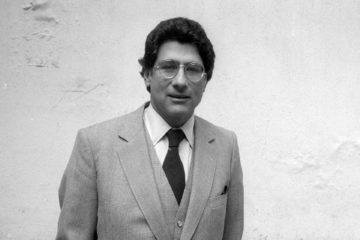Timothy Brennan in The Chronicle of Higher Education:
 Now an academic classic, Orientalism was at first an unlikely best seller. Begun just as the Watergate hearings were nearing their end and published in 1978, it opens with a stark cameo of the gutted buildings of civil-war Beirut. Then, in a few paragraphs, readers are whisked off to the history of an obscure academic discipline from the Romantic era. Chapters jump from 19th-century fiction to the opéra bouffe of the American news cycle and the sordid doings of Henry Kissinger. Unless one had already been reading Edward Said or was familiar with the writings of the historian William Appleman Williams on empire “as a way of life” or the poetry of Lamartine, the choice of source materials might seem confusing or overwhelming. And so it did to the linguists and historians who fumed over the book’s success. For half of its readers, the book was a triumph, for the other half a scandal, but no one could ignore it.
Now an academic classic, Orientalism was at first an unlikely best seller. Begun just as the Watergate hearings were nearing their end and published in 1978, it opens with a stark cameo of the gutted buildings of civil-war Beirut. Then, in a few paragraphs, readers are whisked off to the history of an obscure academic discipline from the Romantic era. Chapters jump from 19th-century fiction to the opéra bouffe of the American news cycle and the sordid doings of Henry Kissinger. Unless one had already been reading Edward Said or was familiar with the writings of the historian William Appleman Williams on empire “as a way of life” or the poetry of Lamartine, the choice of source materials might seem confusing or overwhelming. And so it did to the linguists and historians who fumed over the book’s success. For half of its readers, the book was a triumph, for the other half a scandal, but no one could ignore it.
As an indictment of English and French scholarship on the Arab and Islamic worlds, Orientalism made its overall case clearly enough. The field of Oriental studies had managed to create a fantastical projection about Arabs and Islam that fit the biases of its Western audience. At times, these images were exuberant and intoxicating, at times infantilizing or hateful, but at no time did they describe Arabs and Muslims accurately. Over centuries, these images and attitudes formed a network of mutually reinforcing clichés mirrored in the policies of the media, the church, and the university. With the authority of seemingly objective science, new prejudices joined those already in circulation. This grand edifice of learning deprived Arabs of anything but a textual reality, usually based on a handful of medieval religious documents. As such, the Arab world was arrested within the classics of its own past. This much about Orientalism, it seems, was uncontroversial, although readers agreed on little else.
More here.
